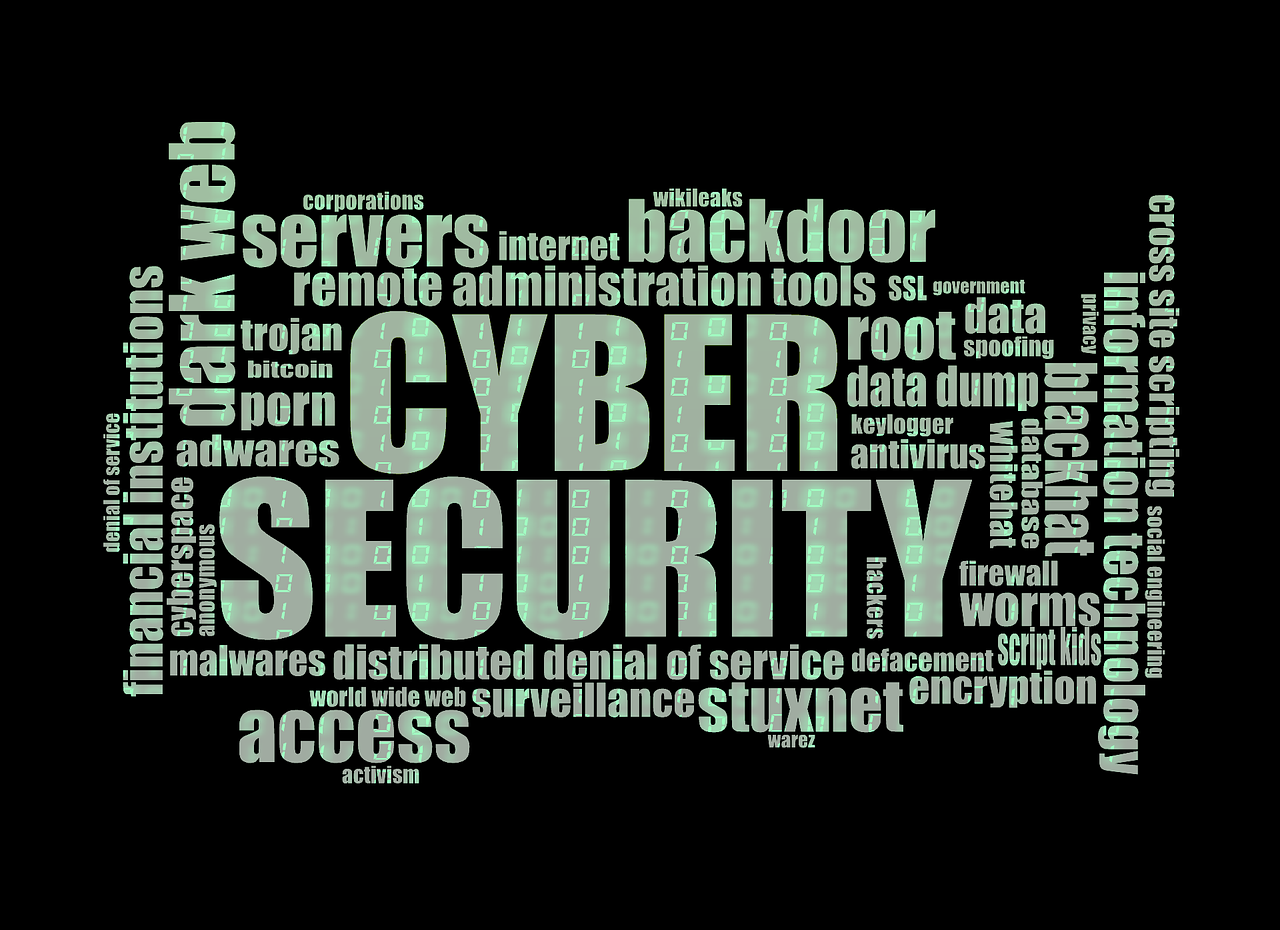In today’s modern digital age, the protection and disclosure of personal data has become an increasingly prevalent issue. As businesses continue to collect and store vast amounts of personal information, it is imperative for both individuals and organizations to understand the legal implications surrounding this topic. This article aims to provide you with valuable insights and comprehensive expertise on personal data disclosure, guiding you through the intricate laws and regulations that govern this area. By exploring frequently asked questions and their concise answers, we empower you with the knowledge you need to make informed decisions and safeguard your interests. Contact our specialized lawyer for personalized guidance and a consultation tailored to your specific needs.
What is Personal Data Disclosure?
Personal data disclosure refers to the act of revealing or making known personal information about individuals to third parties. Personal data includes any information that can be used to identify an individual, such as their name, address, phone number, email, or social security number. Data disclosure can occur in various ways, including through data sharing agreements, consented transfers, or data breaches. Understanding personal data disclosure is crucial for businesses and individuals to ensure compliance with relevant laws and regulations and safeguard the privacy and security of individuals’ information.
Defining Personal Data
Personal data encompasses any information that relates to an identified or identifiable individual. This includes not only the obvious identifiers like name and contact details but also other data that can be used to distinguish or trace an individual’s identity. For example, personal data may include identification numbers, date of birth, financial information, online identifiers, or even behavioral data. It is essential to recognize and identify the various forms of personal data to properly handle and protect individuals’ privacy.

Understanding Data Disclosure
Data disclosure refers to the act of sharing or revealing personal data with external parties, such as other organizations, service providers, or individuals. This may be necessary for legitimate purposes like providing services, performing transactions, or complying with legal obligations. However, it is crucial to understand the risks involved in data disclosure and take appropriate measures to protect personal data from unauthorized access, misuse, or loss.
Laws and Regulations
General Data Protection Regulation (GDPR)
The General Data Protection Regulation (GDPR) is a comprehensive data protection law that sets the standard for personal data privacy and security. It applies to all businesses that process personal data of individuals located in the European Union (EU), regardless of the business’s location. GDPR outlines various principles and rights regarding personal data collection, storage, and disclosure. Businesses must obtain clear consent from individuals before collecting their data and ensure that robust security measures are in place to protect personal information.
California Consumer Privacy Act (CCPA)
The California Consumer Privacy Act (CCPA) is a state-level regulation that provides California residents with certain rights and protections regarding their personal information. It requires businesses that collect and disclose personal data of California residents to be transparent about their data practices and offer opt-out options to individuals. The CCPA empowers individuals to control their personal information and holds businesses accountable for the protection of consumer data.
Other Relevant Laws and Regulations
In addition to the GDPR and CCPA, there are various other laws and regulations at the national and international levels that govern personal data disclosure. These include the Personal Information Protection and Electronic Documents Act (PIPEDA) in Canada, the Privacy Act in Australia, and the Health Insurance Portability and Accountability Act (HIPAA) in the United States. Businesses must stay updated with the applicable laws and regulations in their jurisdiction to ensure compliance and avoid legal consequences.

Importance of Personal Data Protection
Protecting Customer Trust
Personal data protection is crucial for maintaining customer trust and loyalty. When individuals provide their personal information to a business, they expect it to be handled with care and used only for the intended purposes. Failing to protect personal data can result in a breach of trust, leading to a loss of customers and damage to the business’s reputation. By prioritizing personal data protection, businesses can foster trust with their customers and build strong, long-lasting relationships.
Preventing Data Breaches
Data breaches can have severe consequences for businesses and individuals. In the event of a data breach, personal information can be exposed to unauthorized parties, resulting in identity theft, fraud, or other harmful activities. By implementing robust data protection measures and regularly assessing vulnerabilities, businesses can reduce the risk of data breaches and protect individuals from the potential consequences.
Avoiding Legal Consequences
Non-compliance with data protection laws and regulations can lead to significant legal consequences for businesses. Regulatory authorities have the power to impose hefty fines and penalties on businesses that mishandle personal data or fail to meet their obligations. Additionally, individuals whose personal data has been compromised may seek legal remedies, leading to costly litigation and damages. Complying with data protection laws is not only ethically responsible but also essential for avoiding legal liabilities and financial hardships.
Types of Personal Data
Identifying Personal Identifiable Information (PII)
Personal Identifiable Information (PII) refers to any information that can be used to identify an individual. This includes but is not limited to names, addresses, phone numbers, social security numbers, and financial information. Recognizing the different types of PII is vital for businesses to understand the level of sensitivity associated with each data element and to implement appropriate measures to protect them.
Sensitive Personal Information (SPI)
Sensitive personal information (SPI) goes beyond basic PII and includes data that, if disclosed, could significantly impact an individual’s privacy or safety. Examples of SPI include health records, biometric data, social security numbers, financial information, and information about an individual’s race, religion, political beliefs, or sexual orientation. The disclosure of SPI could lead to discrimination, identity theft, or other harmful consequences. It is essential for businesses to handle SPI with the utmost care and implement stringent security measures.
Consent and Authorization
Obtaining Consent for Data Disclosure
Obtaining consent is a fundamental requirement when disclosing personal data. Consent must be freely given, specific, informed, and unambiguous, requiring individuals to understand what they are consenting to. Businesses should provide clear and easily accessible information about their data collection and usage practices, allowing individuals to make informed decisions about sharing their personal information. Consent must be obtained before collecting and disclosing personal data and can be withdrawn at any time.
Issues with Consent Management
Consent management can present challenges for businesses due to various factors, including the complexity of data processing operations, multiple data sharing agreements, and evolving legal requirements. Businesses must establish robust consent management processes, ensuring that consent is obtained and recorded accurately, and that individuals have control over their data. Implementing privacy management technologies and regularly reviewing and updating consent mechanisms can help address these challenges.
Authorization vs. Consent
While consent relates to individuals’ voluntary agreement to the collection and disclosure of their personal data, authorization refers to the legal basis or permission required by businesses to process personal data. Depending on the legal framework and purpose of data processing, businesses may need to rely on different legal bases for data disclosure, such as contractual necessity, legitimate interests, compliance with a legal obligation, or explicit consent. Understanding the legal requirements for authorization is crucial to ensure lawful and compliant data disclosure practices.
Data Collection and Usage
Collection Methods
Data collection methods vary depending on the nature of the business and the purposes for which personal data is being collected. Common methods include online forms, surveys, customer registrations, transaction records, and data obtained from third-party sources. Regardless of the collection method used, businesses must ensure that individuals are aware of the data being collected and the purposes for which it will be used.
Data Usage Practices
Once personal data is collected, businesses must use it only for the purposes for which consent was obtained or as authorized by law. Data usage practices should be transparent, and businesses should provide individuals with clear information about how their personal data will be used, stored, and shared. Regular audits and monitoring should be conducted to ensure that data usage practices comply with applicable laws and regulations.
Data Minimization
Data minimization is a principle that emphasizes collecting and retaining only the necessary and relevant personal data for legitimate purposes. By limiting the amount of data collected and stored, businesses can reduce the risks associated with data breaches and unauthorized access. Implementing data minimization practices can also enhance individuals’ privacy and prevent the unnecessary disclosure of personal information.

Third-Party Data Disclosure
Sharing Data with Third Parties
Businesses often need to share personal data with third parties, such as service providers, vendors, or partners, to fulfill their obligations or provide necessary services. However, data sharing with third parties must be done securely and in accordance with applicable laws and regulations. Businesses should carefully select trusted third parties, establish data sharing agreements, and ensure that adequate safeguards are in place to protect the shared personal data.
Understanding Data Sharing Agreements
Data sharing agreements are legal contracts that outline the terms and conditions for sharing personal data with third parties. These agreements typically specify the purposes for data sharing, the security measures to be implemented, and the responsibilities of each party involved. Understanding and carefully drafting data sharing agreements is essential to ensure that personal data is disclosed and processed in a manner that complies with applicable laws and protects individuals’ privacy.
Controlling Data Leakage
Data leakage refers to the unauthorized or unintentional disclosure of personal data. Controlling data leakage involves implementing robust security measures, such as access controls, encryption, and data loss prevention systems. Regular audits and monitoring should be conducted to identify and prevent data leakage risks. Businesses should also educate their employees about the importance of data protection and implement strict policies to prevent unauthorized data disclosure.
Data Security Measures
Implementing Strong Cybersecurity
Implementing strong cybersecurity measures is essential for protecting personal data from unauthorized access and cyber threats. This includes regularly updating software and systems, using strong passwords and multi-factor authentication, and conducting vulnerability assessments and penetration testing. Businesses should also establish incident response plans to effectively address and mitigate cybersecurity incidents.
Encryption and Anonymization Techniques
Encryption and anonymization techniques can further enhance data security by protecting the confidentiality and privacy of personal information. Encryption transforms data into an unreadable format, which can only be decrypted with the appropriate decryption key. Anonymization removes or alters identifying information, making it impossible to link the data back to an individual. By implementing encryption and anonymization techniques, businesses can significantly reduce the risks associated with data disclosure and breaches.
Employee Training and Access Control
Employees play a crucial role in ensuring the security of personal data. Regular training and awareness programs should be conducted to educate employees about data protection best practices, the importance of data security, and the potential consequences of non-compliance. Access controls should be implemented to restrict employee access to personal data to only those who need it for their job responsibilities. Regular monitoring and auditing of employee access can help prevent unauthorized data disclosure.
Handling Data Breaches
Developing a Data Breach Response Plan
Data breaches can occur despite the best preventive measures in place. Having a well-defined data breach response plan is crucial for minimizing the damage caused by a breach and ensuring a timely and effective response. A data breach response plan should include steps for identifying and containing the breach, assessing the extent of the impact, notifying affected individuals and authorities, providing necessary support and assistance, and conducting investigations to prevent future breaches.
Legal Obligations and Reporting
In the event of a data breach, businesses may have legal obligations to report the breach to regulatory authorities and affected individuals. The specific reporting requirements vary depending on the applicable laws and regulations in the jurisdiction. Businesses should be aware of their legal obligations and establish processes and procedures to ensure timely and accurate reporting of data breaches. Failure to comply with reporting obligations can result in severe penalties and reputational damage.
FAQs
Q: What are the consequences of not complying with data protection laws?
Failure to comply with data protection laws can result in severe consequences for businesses, including hefty fines and penalties imposed by regulatory authorities. Additionally, businesses may face legal liabilities, loss of customer trust and reputation, and costly litigation from individuals whose personal data has been mishandled. It is essential for businesses to understand and comply with data protection laws to avoid these consequences.
Q: Is personal data disclosure only applicable to online businesses?
No, personal data disclosure is applicable to all businesses that collect, store, and process personal data, regardless of whether they operate online or offline. All businesses, regardless of their industry or size, must comply with data protection laws and implement appropriate measures to protect personal data and prevent unauthorized disclosure.
Q: Can I sell or transfer personal data to third parties without consent?
In most cases, selling or transferring personal data to third parties without individuals’ consent is not permissible under data protection laws. Consent is a fundamental requirement for disclosing personal data, and individuals must be informed and have the opportunity to provide or withhold their consent. There may be exceptions to this requirement in certain situations, such as when data disclosure is necessary for complying with legal obligations or for legitimate interests, but businesses must carefully assess and ensure compliance with applicable laws before engaging in such activities.
Q: What are the steps to secure personal data in my company?
Securing personal data requires a multifaceted approach that involves implementing robust cybersecurity measures, establishing strong access controls, and educating employees about data protection best practices. The steps to secure personal data in a company include conducting regular risk assessments, encrypting sensitive data, implementing multi-factor authentication, training employees on data protection, regularly updating software and systems, and establishing incident response plans.
Q: How long should I retain personal data?
The retention period for personal data depends on various factors, including legal requirements, the purpose for which the data was collected, and the legitimate interests of the business. It is essential to establish clear data retention policies that align with the applicable laws and the specific needs of the business. Some data protection laws, such as the GDPR, require businesses to retain personal data only for as long as necessary to fulfill the purposes for which it was collected.































